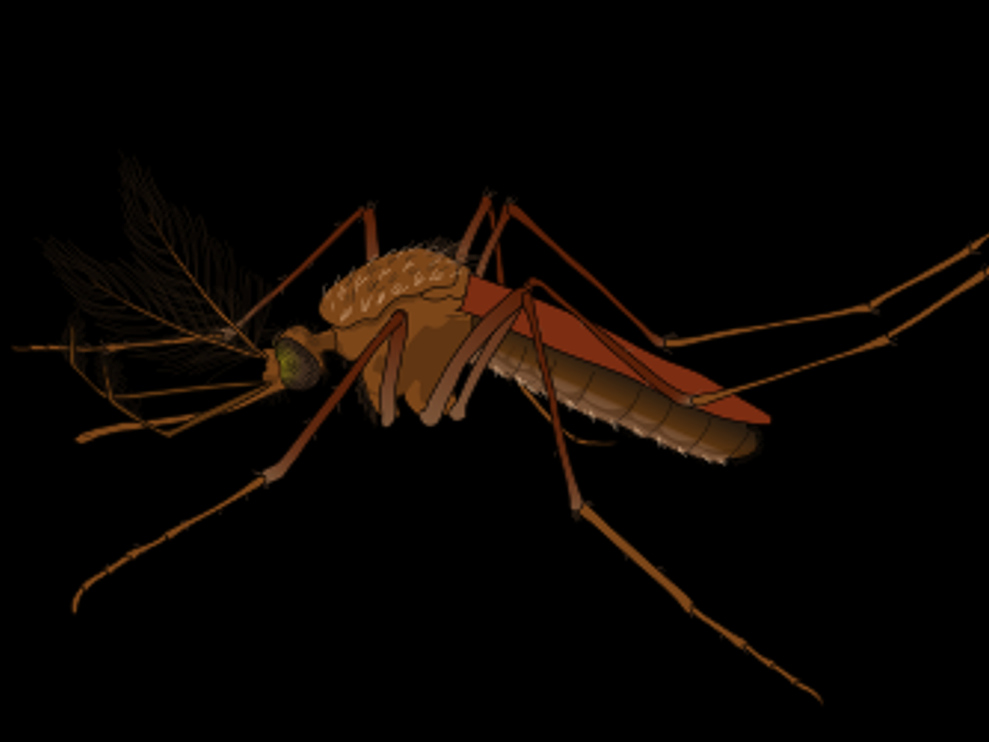
A group of researchers at Juntendo University in Japan has developed a new antimalarial drug that is effective against the drug-resistant malaria pathogen Plasmodium falciparum, the university’s press service reported on July 23.
Malaria, caused by protozoan parasites of the genus Plasmodium, remains a serious health problem worldwide, especially in Africa (90% of all cases). In 2021, 247 million cases of malaria were reported worldwide, 619,000 of which were fatal.
Currently, the main treatment for malaria is taking artemisinin (ACT) and administering its derivatives in combination with other drugs. Treatment of malaria with ACT in Africa led to a significant reduction in the number of deaths from this infection in the mid-2000s.
However, Plasmodium falciparum, which is the most virulent malaria parasite, is resistant to ACT, requiring the development of new antimalarial drugs.
Scientists led by Professor Toshihiro Mita of the Department of Tropical Medicine and Parasitology at the Faculty of Medicine and Dr. Yuzuru Kubohara of the Laboratory of Health and Life Sciences at the Graduate School of Health and Sports Sciences have developed a novel antimalarial drug DIF-1 (+3) based on Dictyostelium-1 (DIF-1).
Professor Mita explained: “Dictyostelium discoideum, a cellular mold, has been used as a model organism for decades. It has recently attracted attention as a potential resource for drug development. In 2021, we discovered that Dictyostelium DIF-1 and its derivatives exhibit antimalarial properties. We have now successfully synthesized a more potent derivative of DIF-1(+3).”.
The results of the study of the new antimalarial drug through in vitro and in vivo tests were published in issue 225 of the journal Biochemical Pharmacology in July 2024.
The researchers compared the antimalarial activity of their synthesized DIF-1(+3) with other DIF derivatives against three laboratory clones of Plasmodium falciparum, two of which were resistant to chloroquine and artemisinin, and 13 natural isolates of the same parasite obtained from malaria patients in 2022 at the field laboratory of Lacor Hospital in Uganda.
In in vivo tests, the efficacy of DIF-1(+3) was tested in mice infected with Plasmodium berghei, a malaria parasite that infects rodents.
The experimental results demonstrated that DIF-1(+3) had a significantly greater inhibitory effect on the growth of three laboratory clones of the malaria parasite compared to DIF-1(+2), a previously synthesized derivative that was the most active prior to this study. Experiments with natural isolates from Uganda gave the same results.
In a mouse study, DIF-1(+3) almost completely suppressed parasite growth during the treatment period and significantly increased the survival time of infected animals compared to those treated with DIF-1(+2). Researchers believe that the longer alkyl chain of DIF-1(+3) compared to other DIF derivatives provides greater antimalarial activity.
Dr. Kubohara emphasized the importance of the team’s research, noting: “Our latest compound was found to be as effective against drug-resistant malaria as it is against susceptible strains. This suggests that antimalarial drugs based on DIF compounds may offer more treatment options in endemic areas where artemisinin-resistant malaria is spreading.”.
Scientists believe that the high potency of DIF-1(+3) compared to artemisinin and other existing antimalarials may mean that it has a different mechanism of action, and this requires further research.
“Further research could identify a target molecule for antimalarial action, which could lead to the discovery of new drugs that will have a major impact in related fields. By using this new compound as a basis for developing new drugs, we could create a tool to help eliminate malaria. The WHO and other global health organizations working to combat malaria will also benefit from this research.”“, Professor Mita concluded.
Source: Rossa Primavera
I am Michael Melvin, an experienced news writer with a passion for uncovering stories and bringing them to the public. I have been working in the news industry for over five years now, and my work has been published on multiple websites. As an author at 24 News Reporters, I cover world section of current events stories that are both informative and captivating to read.
